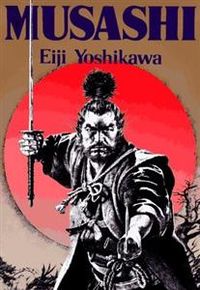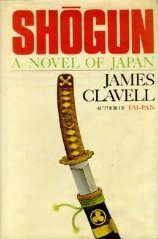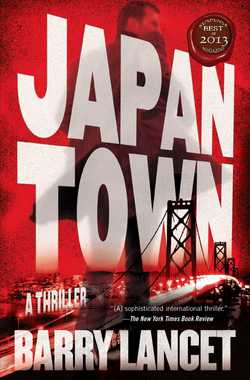Barry Lancet’s first mystery-thriller, Japantown, was the result of more than two decades living in Japan as an expat American. The novel was named Best Debut of the Year by Suspense Magazine, nominated for a Barry Award, and optioned for television by J. J. Abrams’s Bad Robot Productions. His next installment in the Jim Brodie series, Tokyo Kill, is already receiving similar recognition and praise. We asked Lancet to recommend some other works set in the Land of the Rising Sun. Here’s what he said:
What is it about Japan that makes it such a great setting for a mystery or thriller? I think I know the answer: it’s that Japan, like a great novel, has its secrets—and rewards those who ferret them out.
Few outsiders—or gaijin, to use the vaguely unsettling Japanese term—will ever fully understand the people or culture of Japan. When I moved to Tokyo two decades ago, for instance, I thought I could unravel the mystery in a couple of years. Fast-forward to the present and I’ve lived in Japan more than twenty-five years. I’ve learned the language. I worked as an editor at a Japanese publisher. My wife is native Japanese. I’ve cracked much of the mystery—morsels of truth and wisdom that inspired my novels. But as the proverb goes, in Japan “the reverse side also has a reverse side.” Things are never quite what they seem. For me, Japan isn’t just a setting in a novel, it’s a character unto itself. An endlessly fascinating one.
For some great work set in my adopted country and its culture, I would recommend reading these books:
 Musashi, by Eiji Yoshikawa (1981). A swashbuckler of epic proportions set in samurai times, Musashi is beloved in Japan, where it has sold millions of copies. Young samurai wannabe Miyamoto Musashi sets out with a childhood friend to seek fame and fortune, and is left for dead on the battlefield of his first skirmish. Thereafter, he determines to perfect his sword-fighting skills, a quest that leads to a unique string of confrontations, a growing reputation, love, betrayal, spiritual longings, countless twists, and a worthy final battle.
Musashi, by Eiji Yoshikawa (1981). A swashbuckler of epic proportions set in samurai times, Musashi is beloved in Japan, where it has sold millions of copies. Young samurai wannabe Miyamoto Musashi sets out with a childhood friend to seek fame and fortune, and is left for dead on the battlefield of his first skirmish. Thereafter, he determines to perfect his sword-fighting skills, a quest that leads to a unique string of confrontations, a growing reputation, love, betrayal, spiritual longings, countless twists, and a worthy final battle.
 Shōgun by James Clavell (1975). This novel spawned a limpid miniseries and a boon in Japanese language studies across the United States. If you haven’t seen the television version, don’t. Read the book. Clavell’s rendering of the tumultuous and fascinating period of Japanese history (the late sixteenth century) is nothing short of breathtaking, and arguably the best of the sweeping novels he became known for after his intriguing debut, King Rat. Clavell strays often from the finer points of Japanese history and language but follows the broad strokes. What he loses in accuracy he makes up with spellbinding storytelling.
Shōgun by James Clavell (1975). This novel spawned a limpid miniseries and a boon in Japanese language studies across the United States. If you haven’t seen the television version, don’t. Read the book. Clavell’s rendering of the tumultuous and fascinating period of Japanese history (the late sixteenth century) is nothing short of breathtaking, and arguably the best of the sweeping novels he became known for after his intriguing debut, King Rat. Clavell strays often from the finer points of Japanese history and language but follows the broad strokes. What he loses in accuracy he makes up with spellbinding storytelling.
Rising Sun by Michael Crichton (1992). This novel was published at a time when much of the world expected Japan to dethrone the United States as the number one economic power. The possibility led to a curious paranoia which Crichton embraced wholeheartedly and documented in a compelling Sherlock Holmes–type story set in contemporary Los Angeles. The death of a beautiful American model in the boardroom of a Japanese company draws out an American investigator whose understanding of Japanese culture and mores hold the key to solving the crime. While some criticized the book, it’s classic Crichton and a good fictional document of the times.
Memoirs of a Geisha by Arthur Golden (1997). After the fifth person insisted I read this book and backed up the recommendation by shoving a copy of the work in my hands, I finally did—and was pleasantly surprised. The story expertly traces the life and tribulations of a young girl and her sister, both sold into slavery by their impoverished parents. One ends up in a geisha house in Kyoto, the other in a nearby brothel. A mesmerizing story elegantly told. As with Shōgun, the book far outshines the screen version.
So, want to escape to samurai times, or experience the insular Japanese business world in the 1980s, or even step into the Brodie Investigation Firm in contemporary Tokyo? Start reading.







